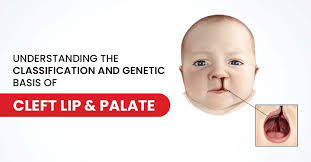Understanding Tinnitus: Causes, Symptoms, and Treatment Options
Introduction: Have you ever experienced a persistent ringing, buzzing, or humming sound in your ears, even when there's no external source of noise? If so, you may be experiencing tinnitus. Tinnitus is a common condition that affects millions of people worldwide, yet it is often misunderstood.
In this blog post, we will explore what tinnitus is, its causes, symptoms, and available treatment options.
Causes of Tinnitus: Noise-induced hearing loss: Exposure to loud noises over time can damage the delicate hair cells in the inner ear, leading to tinnitus.
- Age-related hearing loss: As individuals age, changes in the auditory system can result in tinnitus.
- Ear infections or injuries: Infections or injuries to the ear can trigger tinnitus symptoms.
- Medications: Certain medications, such as antibiotics, antidepressants, and nonsteroidal anti-inflammatory drugs (NSAIDs), may cause or exacerbate tinnitus.
- Medical conditions: Conditions like Meniere's disease, temporomandibular joint (TMJ) disorders, and cardiovascular issues can contribute to tinnitus.
Symptoms of Tinnitus: Tinnitus manifests differently for each individual, but common symptoms include:
- Ringing, buzzing, hissing, or roaring sounds in the ears
- Perception of sound that fluctuates in intensity or pitch
- Difficulty concentrating or sleeping due to the persistent noise
- Emotional distress, anxiety, or depression associated with the condition
Treatment Options for Tinnitus:
While there is currently no cure for tinnitus, several treatment options can help manage its symptoms effectively:
- Hearing aids: For individuals with hearing loss accompanying tinnitus, hearing aids can amplify external sounds, reducing the perception of tinnitus.
- Sound therapy: This approach uses external sounds, such as white noise or nature sounds, to mask or distract from the tinnitus noise.
- Cognitive-behavioral therapy (CBT): CBT techniques can help individuals reframe their thoughts and emotions related to tinnitus, reducing distress and improving coping mechanisms.
- Medications: In some cases, medications like antidepressants or antianxiety drugs may be prescribed to alleviate tinnitus-related symptoms.
- Tinnitus retraining therapy (TRT): TRT combines sound therapy with counseling to habituate the brain's response to tinnitus, making it less noticeable over time.
Conclusion:
Tinnitus is a complex auditory phenomenon that can significantly impact an individual's quality of life. By understanding its causes, symptoms, and treatment options, both sufferers and healthcare professionals can work together to effectively manage this condition. While a cure may still be elusive, ongoing research and advancements in audiology offer hope for improved tinnitus management in the future.


[written by Nazia Parveen Via Publication Assistance]
Tags: Tinnitus, Hearing Health, Auditory Disorders, Sound Therapy, Cognitive Behavioral Therapy, Treatment Options, Hearing Loss, Ear Health, Medical Research, Lifestyle Modifications. @Publication Assistance
Publication Assistance:
For further assistance with research publication or any inquiries, feel free to connect with us. We're dedicated to helping researchers navigate the publication process and contribute valuable insights to the scientific community.

.gif)
.jpg)

.jpg)


Comments
Post a Comment